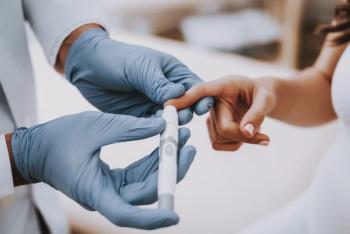
Oncology Pharmacists Adapt to Serve Patients Amid Pandemic
Oncology pharmacists have implemented new ways to communicate with patients, schedule visits and treatments, and re-evaluate their medications regimens during the pandemic.
The coronavirus disease 2019 (COVID-19) pandemic has undeniably placed a significant burden on patients with cancer receiving chemotherapy and other medications and services.
However, oncology pharmacists quickly adapted, learning new ways to communicate with patients, schedule visits and treatments, and re-evaluate their medications regimens.
For example, patient visits at Allegheny Health Network’s Cancer Institute in Pittsburgh, Pennsylvania, which operates more than 20 oncology infusion clinics, have been reduced to help avoid exposure to the novel coronavirus.
Before the pandemic, patients visited the clinic 2 days before each scheduled chemotherapy appointment for laboratory work and consultations. Now, those visits are held on the same day as the chemotherapy treatment, Danielle Roman, PharmD, BOCP, manager of clinical pharmacy services for Allegheny Health Network Cancer Institute, told the
“For some of our patients who have been on treatment for many cycles and have had very stable labs, we felt more comfortable….minimizing lab draws….and just having them done around the time of each treatment,” Roman said.
Where appropriate, the clinic is also spacing out supportive therapies such as bone-modifying medications and erythropoiesis-stimulating agents.
When pharmacists counsel patients on medication changes, they give them the option of continuing their current regimen/schedule or modifying therapy when feasible, Roman told Drug Topics®.
“This has included spacing out supportive care therapies and occasionally maintenance therapies. In particular, we have done this for agents that have evidence for this approach such as bisphosphonates and immunotherapy,” Roman said. “We have also worked to minimize visits for growth factors based on a patient’s response.”
Roman recommends that oncology pharmacists keep an open line of communication with patients. “If they are unable to come to the clinic in person, we have been reaching out with routine telephone education and follow-up after each cycle. Making sure that patients have support in their home environment has become really important for everyday activities such as grocery shopping, but also for emotional support during this time of isolation,” she said.
Although the clinic is minimizing in-person patient visits, there has been a surge in visits for newly-diagnosed malignancies, Roman told Drug Topics®. “In the last several weeks, we have had a record increase in new patients that need anticancer therapy. I can only speculate that this may be related to patients being comfortable seeking medical care and following up on required testing that may not have taken place during the periods of social isolation.”
Related:
Although the clinic experienced an initial increase in home care/infusion services in the early months of the pandemic, with increased uptake of social distancing and use of personal protective equipment (PPE), “we are seeing more patients prefer in-person visits in the clinic,” Roman noted.
However, the clinic continues to use home care services to “help support situations where the patients are not comfortable with the clinic environment or have the need for frequent visits (such as frequent blood draws),” Roman concluded.
Reference:
1. Traynor K. Cancer care adapts during pandemic. American Journal of Health-System Pharmacy. September 2020.
Newsletter
Pharmacy practice is always changing. Stay ahead of the curve with the Drug Topics newsletter and get the latest drug information, industry trends, and patient care tips.























